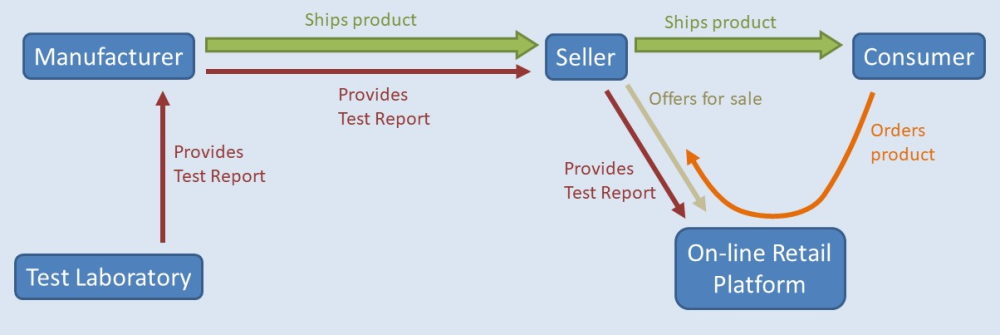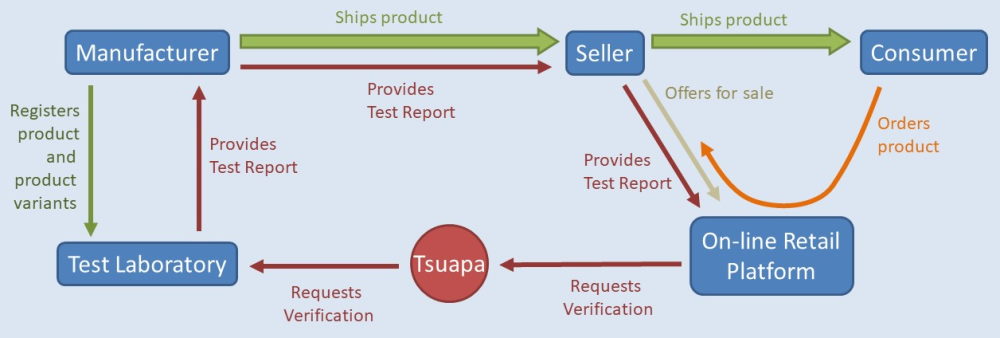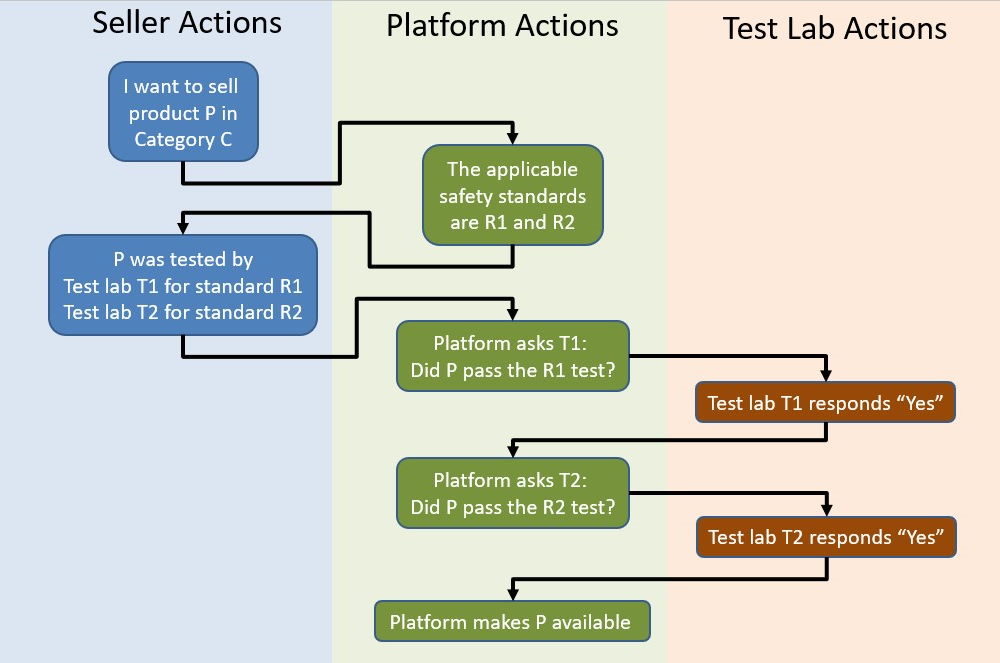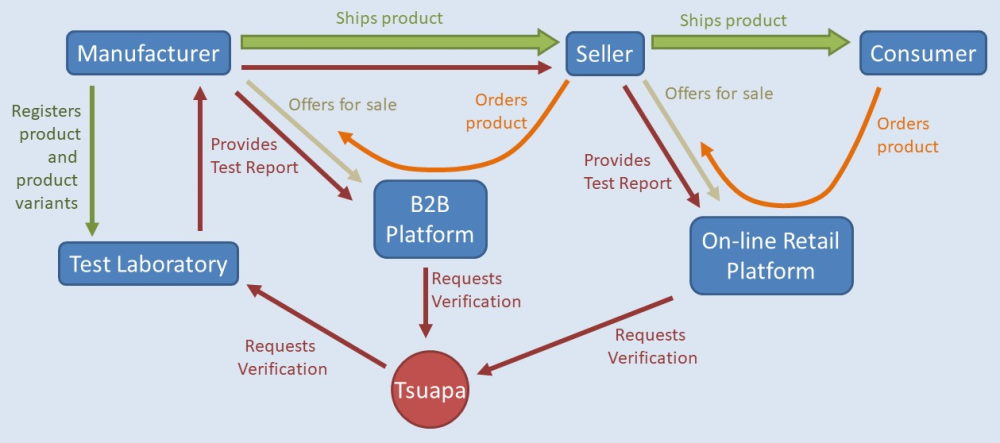Tsuapa’s verification system – how does it work?
Online retail platforms can verify that a product has been tested for compliance with product safety regulations through Tsuapa’s API (Application Programming Interface).
The supply chain of online retail platforms
Online retail platforms make it possible for independent sellers to offer products for sale. The seller purchases a batch of products from the manufacturer and re-sells them individually to consumers via the online retail platform.

Consumers search for products on the platform’s website and can place an order. The platform takes care of payment and passes the order on to the seller.
The flow of information about compliance with safety regulations
Testing for product safety must be done by an independent accredited test laboratory.

That test laboratory provides the manufacturer with a test report and test certificate. The manufacturer can provide that test report to the seller. The seller can provide test results to the platform.
How do you know if the product that is offered for sale matches with that test report?
That’s what Tsuapa is about.

The online retail platform can ask the test laboratory, through Tsuapa’s API (Application Programming Interface) to confirm that the test report matches the product that is offered for sale by the seller.
The next section explains how that verification is done.
The workflow of Tsuapa’s verification system
The online retail platform needs to determine, for each product category, which safety regulations are applicable. That may depend on the region where the product is sold.
The seller provides, for each product that is offered for sale on the platform:
- The product category. (USB chargers for mobile phones, for example.)
- A product identifier, that uniquely identifies the product and is printed on the product and on the retail packaging. (The brand name and manufacturer part number, for example.)
- Which accredited test laboratory has tested the product for each applicable safety regulation.
When a new product is offered for sale, the online retail platform can ask the accredited test laboratory, through Tsuapa’s API, to confirm that this product has been tested for compliance with that safety regulation.

The communication between on-line retail platform and accredited test laboratory is automated by Tsuapa. This type of automation was pioneered by the Wireless Power Consortium.
To make this work, the manufacturer must register all technically identical variants of a certified product with the accredited test laboratory that tested the product. Each accredited test laboratory that participates in Tsuapa maintains a database with technically identical variants of a certified product. These test laboratories can confirm, through Tsuapa’s API, that a product has passed the relevant safety tests.
Tsuapa for B2B platforms
For sellers it can be convenient to use a B2B platform to find products that canbe purchased in volume and re-sold individually on a B2C online retail platform.

B2B platforms can use Tsuapa to verify a claim of compliance with safety regulations in the same way as an online retail platform.
For unsophisticated sellers it is difficult to determine if a test report matches the product that is offered for sale by the manufacturer. That makes Tsuapa verification a useful service to offer unsophisticated sellers who may otherwise risk legal liability for ignorantly selling unsafe products to consumers.
